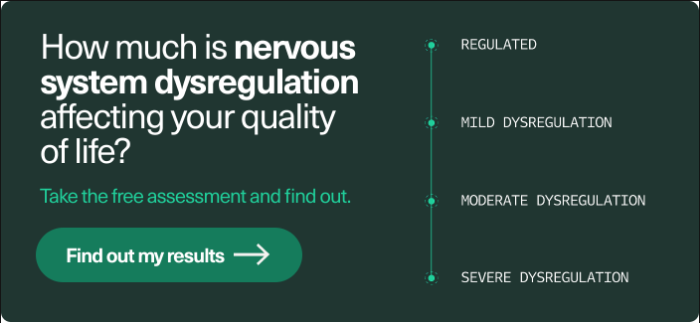Overthinking and How to Finally Quiet the Chaos
You're trying to meditate, but instead of achieving zen-like stillness, your brain decides to throw you a parade of random thoughts about that awkward conversation from 2019, tomorrow's grocery list, and maybe some kind of doom vision.
We humans have managed to evolve ourselves into a bit of a catch-22. Our greatest survival tool—thinking—has become our greatest tormentor.
One Emotion Births a Thousand Thoughts
Your brain isn't just being chaotic for fun. Humans have the tendency to suppress fear, guilt, anxiety, and disappointment like emotional hoarders, shoving feelings into mental closets until they start spilling out as an endless stream of "what if" scenarios and midnight anxiety spirals. It's not that you have too many thoughts—you have too many unfelt feelings that are disguising themselves as thoughts.
The Tree Metaphor That'll Change Your Life
Aleksandra Tarka our Neuroscientist breaks this down beautifully: imagine your overthinking as a tree. Mental training (like meditation and mindfulness) is like trimming branches—you're managing symptoms. But emotional release? That's hitting the root. Cut the root of one buried emotion, and suddenly a thousand anxious thoughts just... disappear. No mental gymnastics required.
This is the difference between playing whack-a-mole with your thoughts (exhausting and pointless) versus addressing the emotional source code running the whole show (efficient and actually effective).
The Five Flavors of Mental Chaos
Let's categorize your particular brand of overthinking because knowing your enemy is half the battle.
1. The Endless To-Do List Brain (Pre-anxiety)
This is the mind that turns meditation into project planning. You sit down to be present, and suddenly you're mentally reorganizing your entire life. It's not anxiety yet—it's more like pre-anxiety, the opening act before the main event of full-blown panic.
The neuroscience: Your posterior brain lights up with increased alpha waves, like your mind's way of saying, "Hey, we should probably be doing something productive instead of this sitting thing.”
The why: Because you're chasing being through doing. You want to be successful, happy, safe—so you create endless tasks to get there. But… you already are those things. You just forgot how to be without doing.
2. Future-Tripping (Anticipatory Anxiety)
Welcome to the "what if" Olympics, where your brain wins gold medals in catastrophic thinking. Your mind becomes a horror movie director, constantly screening worst-case scenarios that haven't happened and probably never will.
The neuroscience: Your frontal brain goes full beta-wave rave mode.
The emotional truth: This isn't actually about the future—it's about past trauma projecting itself forward.
3. Present-Moment Panic (Reactive Anxiety)
This is when everything feels dangerous right now. Someone looks at you wrong? Threat. Your phone doesn't charge properly? Threat. Your coffee is too hot? Existential crisis.
The neuroscience: Your entire brain becomes a beta-wave disco ball, while your calming alpha, theta, and delta waves pack up and leave the party. It's fight-or-flight mode convinced that literally everything is out to get you.
4. The Rumination Station (Past-Focused Anxiety)
Ah, the greatest hits album of your embarrassing moments, played on repeat. You become a detective investigating past conversations, looking for clues about what you should've said differently.
The neuroscience: The back of your brain (where memories live) starts throwing a beta-wave tantrum.
The emotional core: Usually guilt and shame taking over. The cure? Forgiveness—of yourself, for being human.
5. Random Thought Generator
This is your brain's way of creating mental static to avoid silence.
Why this happens: When your mind gets quiet, suppressed emotions start rising to the surface. Your brain, being the chaos agent it is, creates random thoughts to distract you from feeling those uncomfortable feelings.
Some Technique to Calm The Chatter
The Worst-Case Scenario Technique
Here's some counterintuitive wisdom: instead of running from your worst fears, run toward them.
How it works:
- Imagine your worst-case scenario in vivid detail
- Feel the emotions it brings up in your body
- Use EFT tapping to release those emotions
- Accept the scenario completely
- Watch your mind stop caring about it
The magic happens when you accept what you're already worried about. If you're okay with the worst case, there's nothing left to fear.
EFT (Emotional Freedom Technique)
This involves gentle tapping on the face and upper torso while tuning into emotions. It may sound woo woo but it can be very effective. You're basically giving your nervous system a software update, debugging the emotional programs running your thought loops.
The Havening Technique
Put your hands on your upper arms and do gentle strokes. It's like giving yourself a hug that speaks directly to your brain chemistry, producing different brainwaves that help process stuck emotions. Simple, effective, and you can do it anywhere without looking like you're performing an ancient ritual.
Ho'oponopono (The Mental Reset Button)
When your brain is stuck on loop, give it something else to do: "I love you, I'm sorry, please forgive me, thank you." Repeat it like a mantra. You're basically interrupting the automated thinking pattern and giving your mind a new job.
It's like changing the channel when your brain is stuck on the Overthinking Network.
Nervous System Regulation
When your nervous system is in a chronic fight/flight state, it is hard to slow down the negative mental chatter. Showing your body that is is safe to get into the parasympathetic relaxation/recovery/digestion state helps to get into the lower frequency brainwave states that reduce anxiety.
The Philosophical Endgame
Quieting your mind is not about becoming a thought-free zen master who levitates above worldly concerns. It's about becoming present—actually here for your life instead of lost in mental time travel.
When your mind isn't constantly generating thoughts to avoid feelings, something beautiful happens: creativity flows, solutions appear naturally, and life becomes less strenuous and more flowing. You stop having to think your way through everything because you start knowing your way through it.
